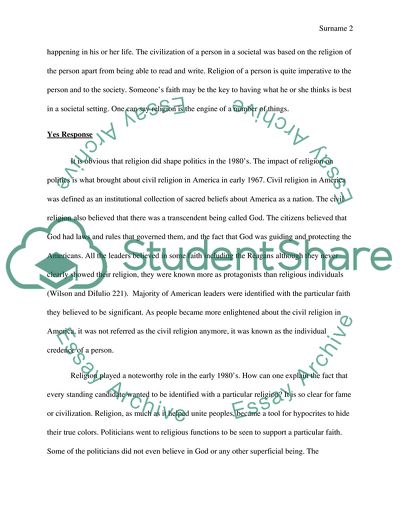Cite this document
(Did Religion Play a Part in Politics in the 1980's Literature review Example | Topics and Well Written Essays - 1750 words - 1, n.d.)
Did Religion Play a Part in Politics in the 1980's Literature review Example | Topics and Well Written Essays - 1750 words - 1. https://studentshare.org/religion-and-theology/1776478-did-religion-shape-politics-in-the-1980s
Did Religion Play a Part in Politics in the 1980's Literature review Example | Topics and Well Written Essays - 1750 words - 1. https://studentshare.org/religion-and-theology/1776478-did-religion-shape-politics-in-the-1980s
(Did Religion Play a Part in Politics in the 1980'S Literature Review Example | Topics and Well Written Essays - 1750 Words - 1)
Did Religion Play a Part in Politics in the 1980'S Literature Review Example | Topics and Well Written Essays - 1750 Words - 1. https://studentshare.org/religion-and-theology/1776478-did-religion-shape-politics-in-the-1980s.
Did Religion Play a Part in Politics in the 1980'S Literature Review Example | Topics and Well Written Essays - 1750 Words - 1. https://studentshare.org/religion-and-theology/1776478-did-religion-shape-politics-in-the-1980s.
“Did Religion Play a Part in Politics in the 1980'S Literature Review Example | Topics and Well Written Essays - 1750 Words - 1”. https://studentshare.org/religion-and-theology/1776478-did-religion-shape-politics-in-the-1980s.


